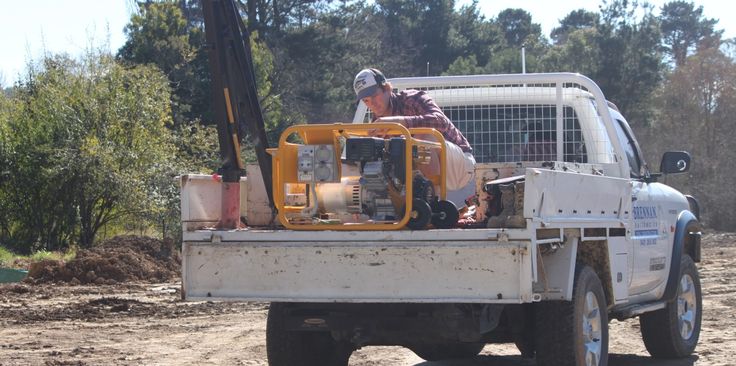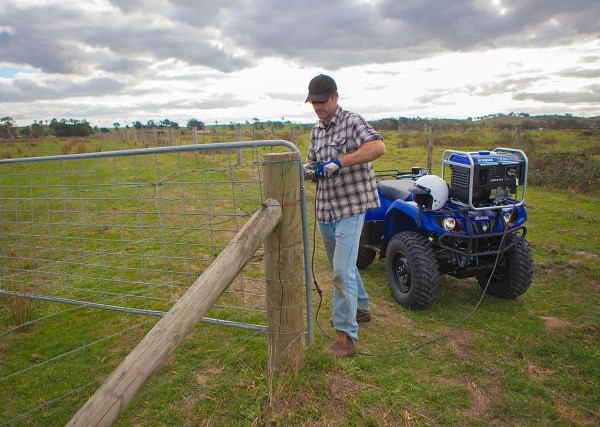Looking for a generator for the jobsite but don't want to go big? An inverter generator could be the way to go. Here's why...
When we talk about power around the jobsite, we're usually recommending the open frame trade generators that pack the most grunt. Those Petrol or Diesel powerhouse generators that you can rely on for a full day's worth of electricity for your big and small equipment. And even models that provide a welder, compressor and generator all in one as well as trade specific requirements such as Worksite approved features, lifting bars etc...

Worksite Approved: Crommelins 8.0kVA
But what happens when you don't need all that? And all you really want is a lightweight generator you can count on to power up your smaller tools as you move from job to job? That's where these smaller inverter generators come in. Smaller hand drills, saws, sanders, some air tools, or recharging of batteries for lithium-ion powered tools can often be popular jobsite equipment run by inverter generators.
This isn't only for independent tradies, but also the bigger jobsites have traditionally relied on one or two super-powerful conventional generators. There's now a growing trend for some jobsites to equip groups of employees with their own smaller power sources. So individuals have control of the generator and can easily move it to where they need it.
-
Here Are 5 Reasons To Consider an Inverter Generator For The Jobsite:
1. Potential savings: They might be small, but investing in some smaller inverter generators has huge potential to save you the hassle and money of hiring a large traditional generator for the jobsite.
2. Clean power: The great thing about inverter generators is that they produce very clean power - the same quality electricity you would get from your home power socket. This is ideal for charging lithium ion batteries in hand tools, as well as mobile phones, laptops and tablets. And it can power those tools with sensitive electronic control modules, like some electric hammers.
3. Lightweight, small package: We don't need to tell tradies the benefits of having a lightweight generator when you spend your day moving from Ute to job and back again. But bigger jobsites can also benefit from power in a smaller package. Rather than powering the whole site with one conventional generator, you can equip groups of tradies with smaller inverter generators, which they can move around easily depending on the task at hand. Just for the record, the Yamaha EF2800i only weighs 29kg.

4. Quieter operation: One of the reasons many jobsites choose an inverter generator is the noise factor. Thanks to the smaller engines and insulated materials, inverter generators run extremely quietly - some are only as loud as a normal conversation is how quiet it runs. The Yamaha EF2000i emits a super quiet 52dBA and the Yamaha EF2800i is extremely quiet for a generator of its size, with a very respectable 60dBA. This is great news if you're working on a residential jobsite or anywhere else with strict noise regulations. For reference, most conventional trade generators will produce 72dBA and above.
5. More efficient: Inverter generators are more fuel efficient than their traditional counterparts. This is because the engine speed varies with load. So if the load on the generator keeps changing while in use, you won't sacrifice great fuel economy.
-
The Drawbacks of Inverter Generators
Nothing is perfect (sorry!), so there are some trade-offs when you choose an inverter generator for the jobsite.
One of these is fuel capacity. With lightweight inverter generator, you generally won't have the big heavy fuel tanks you get in a traditional generator. This means runtimes can be much shorter - anywhere from a couple of hours up to 10 hours. The good news is, there are some exceptions to the rule; again the Yamaha EF2800i has a massive 11.2-litre fuel tank and will run continuously for a staggering 17 hours:
-
Another big trade-off is, of course, the power itself. The size of inverter generators means they are simply not capable of generating the power of conventional trade generators. Most construction/building sites requiring traditional portable trade generators will be in the order of 8kVA to 12kVA in size. Inverter generators just don't come in that size. So if you are looking for something that can handle heavier, conductive loads for larger pieces of equipment, you need a conventional trade generator from the likes of Gentech, Powerlite, Crommelins or larger Yamaha AVR models. You can't run your standard sized welders, brick-saws or concrete mixers from small portable inverters for example, so just be sure that if you go with an inverter generator for your job site, that its fit for purpose.
-
Lastly, you may also find these links helpful:
- Portable Generator Reviews: Trade and Farm Generators
- Best Generator for Power Tools
- Portable Trade Generator Range from My Generator
-
DISCLAIMER* Please note, this advice is general in nature and we strongly recommend consulting the product manual and where relevant, a professional installer.









